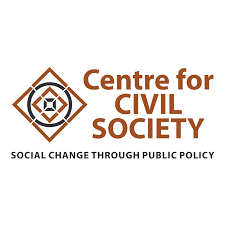Cause Area
Primary Sectors
Secondary Sectors
Financials
-
2020
Total IncomeRs.87,642,528Total ExpensesRs.77,173,233Non Program ExpensesRs.655,463Program ExpensesRs.76,517,770Tip: Click on any value above to exclude it. -
2021
Total IncomeRs.77,967,917Total ExpensesRs.56,197,443Non Program ExpensesRs.500,248Program ExpensesRs.55,697,195Tip: Click on any value above to exclude it. -
2022
Total IncomeRs.86,390,422Total ExpensesRs.66,223,524Non Program ExpensesRs.531,942Program ExpensesRs.65,691,582Tip: Click on any value above to exclude it. -
2023
Total IncomeRs.85,812,975Total ExpensesRs.106,161,645Tip: Click on any value above to exclude it. -
2024
Total IncomeRs.63,355,429Total ExpensesRs.92,492,417Tip: Click on any value above to exclude it.
Geographies Served
Programs
-
Livelihood Programme
The livelihood initiative aims to empower the rural and urban poor by promoting livelihood freedom and skill development for underprivileged youth. It advocates for policies that enhance ease of doing business, eliminate barriers to market entry and exit, and support small entrepreneurs such as street vendors, cycle rickshaw pullers, small shop owners, and farmers. The initiative also focuses on sectors like Fisheries, Agriculture, and MSMEs, working to remove regulatory obstacles that hinder individual prosperity. Additionally, the initiative embraces a Terracotta Environmentalism approach, which emphasizes aligning incentives and involving local communities and market-based instruments for environmental protection and conservation.
-
Umang Programme
Project Umang seeks to evaluate the effectiveness of blended learning and school leadership interventions in improving student learning outcomes. It specifically targets low-income private schools, which have emerged to meet the educational needs of underprivileged households. By enhancing the capacities of students, teachers, and principals, the project aims to enhance overall school quality. The programme focuses on two key aspects: Blended Learning and School Leadership Training, offering support for quality improvement in these schools.
-
Repeal Law Day Programme
In 2014, the Centre for Civil Society(CCS) launched the 'Repeal of 100 Laws' Project to identify laws that could be abolished for three specific reasons. These include laws that are redundant, laws that have become obsolete in light of new legislation, and laws that hinder development, governance, and individual freedom. The project aims to streamline the legal framework by eliminating unnecessary and restrictive laws that no longer serve their intended purpose.
-
Educational Programme
The education initiative focuses on promoting school choice and quality education for all in India. It aims to reform education policy to cater to individual student needs and empower parents to make decisions regarding their child's education, whether it be public, high-fee private, or Budget Private Schools (BPS). Through research, pilot projects, and outreach, the initiative engages with policy and opinion leaders to reshape the education landscape. Specific programmes include Bolo English, which equips low-income children with spoken English skills, and the Science & Technology Policy vertical, dedicated to transformative change in the field. The Dharampal Fellowship empowers low-income private school teachers through training and networking opportunities.
-
Governance Programme
The governance initiative emphasizes the importance of the rule of law in safeguarding individual freedoms. Its objective is to align laws with public opinion, protect individual rights, reward positive behaviour, and optimize resource allocation. The initiative strives to identify and address unjust, outdated, and conflicting laws that hinder choice and growth. Programmes within the initiative include efforts to improve the quality of laws, enhance healthcare accessibility through mobile health solutions, and create a business-friendly environment through streamlined regulations based on evidence-based policy analysis and the principles of the Rule of Law.
-
Jeevika Film Festival
CCS hosts an annual Asia-wide documentary festival that sheds light on the livelihood challenges encountered by the rural and urban poor. The festival serves as a platform for documentary makers to share their experiences and creativity, aiming to strengthen the struggle for freedom among the poor. By highlighting policies and regulations that restrict livelihood freedom, Jeevika: Asia Livelihood Documentary Festival seeks to advocate for inclusive and sustainable development. It encourages filmmakers from around the world to engage with livelihood issues and promotes robust discussions on the consequences of detrimental policies, fostering changes in practices and mindsets.
Impact Metrics
-
People Reached Through the Program Epolicy for Young Leaders
Program Name
epolicy for Young Leaders
Year-wise Metrics- 2017-18 541
- 2018-19 1090
- 2019-20 801
- 2020-21 648
- 2021-22 405
-
Reached People Through Ebaithak for Conversations in Policy
Year-wise Metrics- 2018-19 285
- 2019-20 450
- 2020-21 1097
- 2021-22 700
Registration Details
-
PAN Card
AAATC1889P
-
Registration Number
23990
-
CSR Form 1
Not Available
-
80G
AAATC1889PF20214
-
12A
AAATC1889PE20214
-
FCRA
231660123
About
-
Headquarters
New Delhi, Delhi
-
Since
1997
Impact
CCS is India's leading liberal think tank, ranked 81 worldwide by the annual study conducted by the Think Tanks and Civil Society Program at the University of Pennsylvania.
Vision and Mission
CCS envisions a world where each individual leads a life of choice in personal, economic and political spheres and every institution is accountable. Their mission is to advance social change through public policy, promoting choice and accountability across private and public sectors.
Political & Religious Declarations
-
Political Affiliation
-
Religious Affiliation
Location
-
Offices in Cities
New Delhi
Other Details
-
Type
Non-profit
-
Sub Type
Trust
Website
Technology Adoption
-
SOC 2 Compliant
No
-
Financial Management
-
Beneficiary Management

